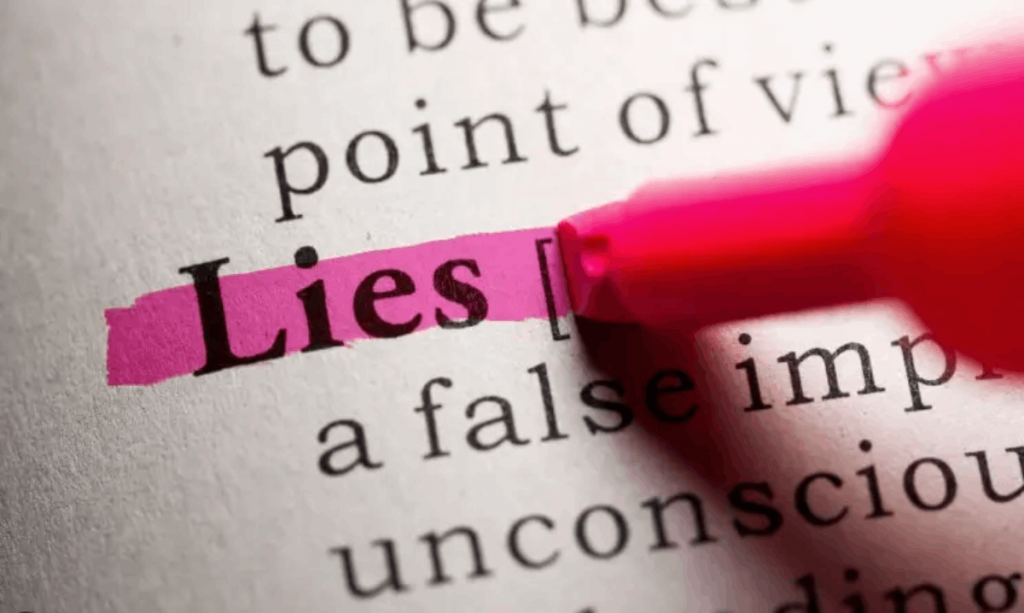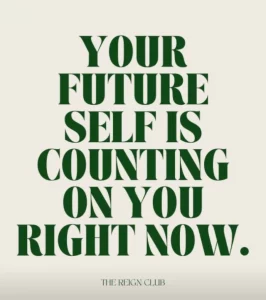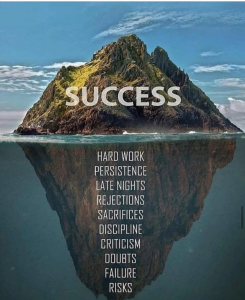Dave Hollis’ book “Get out of your own way” targets individuals seeking a more meaningful life who may have lost sight of their purpose but desire to realize their full potential for the sake of their loved ones. Our ability to believe and act on our desires lies within our control and depends on our choices. Hollis highlights several lies that we must discontinue believing, including:
Everyone is thinking about what I’m doing: Similar to how you have your own insecurities, the people around you also have their own problems to deal with. They are not preoccupied with thinking about you constantly or concerned about your actions. This is simply a fact of human nature. Our own worries and insecurities tend to dictate our reactions to others. It’s our ego that leads us to believe that our actions significantly impact others and that they care about what we do or don’t do. This illusion can make us feel like our actions are more important than they actually are. If you’re holding back due to worrying about other people’s opinions, it’s important to evaluate whether you’re giving too much weight to their thoughts and feelings. Remember, those who truly matter won’t be bothered by your choices, while those who do mind aren’t worth your concern. Other peoples fulfilment does not hinge on your success, it only your dream.
“If someone does have a problem with something you’re doing, it’s likely they are challenged by it, feel insecure because of it, are jealous of your willingness to chase after it, or are frustrated that your belief in yourself makes them more aware of their disbelief in their own ability. In the end, it’s rarely actually about you.”
Dave Hollis
Being right all the time doesn’t make me an ass: Acknowledging and accepting your mistakes is crucial as always insisting on being right can give off an air of arrogance. It’s perfectly fine to be vulnerable and admit when you’re wrong as it allows for openness to alternative ideas. Being unwilling to admit fault is a sign of both insecurity and immaturity.
Failure means you’re weak: One of the keys to personal growth is learning from our failures. It takes strength to put ourselves in positions where we might fail, but that’s where we have the most potential for growth. Failure is success when we learn from it and grow. Our mindset plays a critical role in how we perceive failure. By reframing failure in a positive light, we can create a full life that continues to improve over time. By asking ourselves questions such as how quickly we bounced back or how much we learned from our mistakes, we can develop greater confidence and resilience. We should celebrate our wins while also normalizing failure and understanding its role in our journey towards success.
A ship in harbour is safe, but that’s not what ships are build for.
John Shedd
It’s my job to protect them from problems: The critical events in our lives help shape who we are today, so it’s important not to shield our loved ones from setbacks. Children need to experience difficult situations to become the people they are meant to be, even if it’s uncomfortable. The same goes for our partners – rather than trying to prevent discomfort, we should stand alongside them for support. Enduring hardships and growing through difficult times help us emerge as stronger, more mature, and more confident in our abilities. Therefore, we should resist the temptation to fix everything and instead allow ourselves and those around us to learn and grow from difficult situations.
I can phone it in and be just fine: When you do something with minimal effort and without full commitment, it can have a negative impact on your personal brand. Your personal brand is how you want people to perceive you when they think of you. Building your personal brand requires being consistent and intentional with your actions. You should focus on the desired outcome and behave in a way that aligns with it.
Push yourself to consistently be your best, and you will grow a sense of pride and self-respect that redefines who you think you are and what you think you’re capable of. If you go all in, this new sense of self acts as a catalyst to propel you forward in every part of your life.
Dave Hollis












1 thought on “The Lies We Believe In (Part 2)”
Comments are closed.